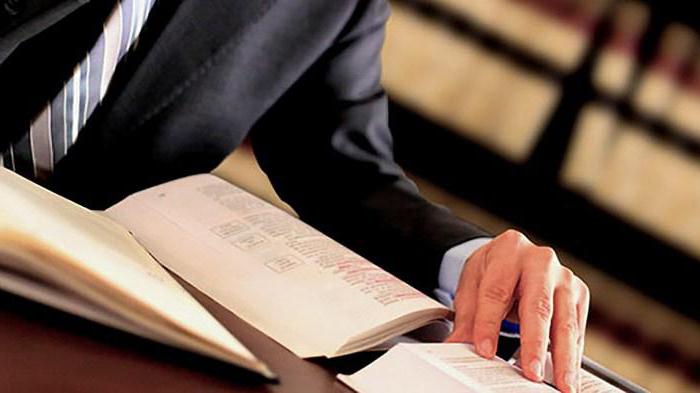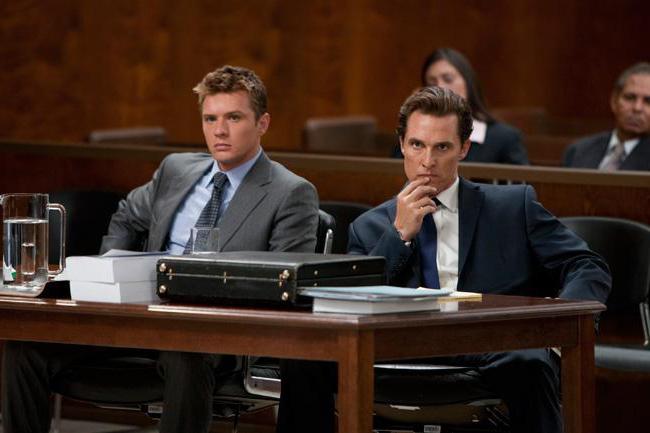The Federal Law No. 63 defines the main aspects of the activities of lawyers. The normative act establishes the procedure for obtaining the corresponding status, duties and rights of defense attorneys, the rules for sending requests, and also regulates other issues relating to the work of these persons. The general powers of a lawyer are defined in Article 6. Consider them.
Features of the activity
Lawyers provide qualified legal assistance on a professional basis. To carry out such activities, a person must receive the appropriate status. The procedure for its provision is established in Federal Law No. 63. The main objectives of the activities of these entities are to protect the rights, interests and freedoms of individuals and organizations, to ensure their access to justice. Defenders, in accordance with Federal Law No. 63, are not entrepreneurs.
Nuances
The powers of a lawyer in court are established by codes depending on the type of proceedings. In cases provided for by the rules, a person must have a warrant issued by the relevant entity. The form of this document is approved by the justice authority. In other cases, the powers of a lawyer are certified by notarized paper. It is not allowed to demand from the defense counsel and the persons to whom he provides assistance the presentation of an agreement concluded between them.
General powers of a lawyer
The defender has the right to collect information necessary for the provision of legal assistance. He may, among other things, request characteristics, certificates, other documents from local / state authorities, public and other organizations. The order of sending requests is established by Art. 6.1 Federal Law No. 63. These structures are required to submit to the defense counsel the required documents or their copies. The lawyer's powers include interviewing persons allegedly possessing information related to the dispute in which he provides legal assistance. In this case, it is necessary to obtain consent from these entities. The lawyer has the right to collect and submit documents and objects that the court may recognize as material and other evidence in the manner established by the norms. A lawyer may engage specialists on a contractual basis to clarify issues related to the provision of legal assistance. A lawyer has the right to freely meet with a client in private, without limiting the number and duration of visits. At the same time, conditions must be created to ensure confidentiality. The lawyer's authority includes recording information contained in the production materials, including using technical means. In this case, the defense counsel must observe state or other protected secrets. The powers of a lawyer may include other actions that do not contradict legal norms.

Paper issue
The procedure for formalizing the powers of a lawyer is determined in Article 55 of the Civil Code. According to the norm, the documents provided to citizens are notarized or in the organization in which the assisted subject studies or works, in the housing and maintenance site at his place of residence, the leadership of the social protection institution, the stationary medical institution in which he is staying, the military commander (commander) parts. In places of imprisonment, it is also possible to certify papers establishing the powers of a lawyer. Power of attorney in such cases is approved by the head of the correctional institution. Paper on behalf of the organization is issued with the signature of its head or other entity having the relevant competence, according to the constituent documentation.
Additionally
In the 6th article of the Federal Law No. 63 it is established that the powers of a lawyer are confirmed by a special warrant. It is issued by the appropriate human rights organization. For direct participation in the case, therefore, the lawyer needs to have a warrant and power of attorney from the subject who invited him to be examined. The competence of the defense counsel may also be determined by an oral or written statement. The first is mandatory recorded in the minutes of the hearing.
Document Specificity
The definition of a power of attorney is present in the 185th article of the Civil Code. A document establishing the limits of competence within the framework of specific legal relations is recognized as it. The duration of the paper is no more than 3 years. If the document does not specify its validity period, then by default it is considered equal to a year from the date of issue. The power of attorney, which does not contain an indication of the day of its commission, is recognized as null and void. In accordance with the rules, the subject who has the document is obliged to personally carry out the actions provided for in the paper. However, in certain cases, he may delegate their implementation to another person. For this, the corresponding right must be established in the document or the procedure is caused by the need to protect the interests of the citizen who issued the paper. In the case of the transfer of authority, the person must notify the principal about this, as well as provide the necessary information about the new lawyer. If this requirement is not fulfilled, the responsibility for the actions of the new entity lies with the one to whom the legal opportunities were provided initially. The validity period of a document submitted by way of delegation cannot be longer than the period established for the power of attorney on the basis of which it was issued.

Termination of Legal Relations
The procedural powers of a lawyer cannot be exercised when:
- The expiration of the document establishing them.
- Revocation of a power of attorney by the entity that issued it.
- Refusal of the person to whom the document is provided.
- Liquidation of the organization on behalf of which the paper was issued.
- The death of the principal, the recognition of his full / limited legal capacity, as well as missing.
- Liquidation of the organization to which the power of attorney was issued.
- The death of the protector.
Document Classification
The lawyer's credentials are certified :
- One-time paper. Such a document is issued to a person for participation in one proceeding in one instance.
- Common paper. Such a document allows you to represent the interests of a person in all disputes and all instances.
- Special paper. This power of attorney is granted to the entity to participate in the same proceedings in all instances.
Limitations
An advocate (representative), whose powers , in accordance with Article 54 of the Code of Civil Procedure, are fixed in the relevant paper, performs all the actions specified in it. However, the rules provide for certain requirements. In particular, some of the powers of a lawyer are confirmed by special reservations in the document. These include:
- The right to sign a claim.
- Submission of a claim to the court.
- Submission of the dispute to the arbitration court.
- Submission of counterclaim.
- Refusal of requirements (partial / full) or reduction of their size.
- Change of the basis or subject of action.
- Recognition of requirements.
- The signing of a settlement agreement.
- Transfer of authority to another person.
- Appeal of a decision or other ruling on a dispute.
- Presentation of writ of execution.
- Receiving money or other property awarded in a lawsuit.
Code of Civil Procedure
They determine the procedure in accordance with which the powers of a lawyer in civil proceedings are exercised . The norms pay special attention to the regulation of the duties and rights of defenders. The powers of a lawyer in a civil case are exercised by a person who meets a number of requirements. In particular, the subject:
- Carries out relevant activities as a professional lawyer. He must have sufficient knowledge and experience.
- He clearly understands his functions in a particular case and in the process as a whole.
- It has at its disposal a wide arsenal of measures, methods and means established by the norms for fulfilling its tasks and duties.
- I am well aware of the size and types of responsibility for the effectiveness, timeliness and quality of my work on behalf of a participant or third parties in production.
According to Article 35 of the Code of Civil Procedure (Clause 1), the powers of a lawyer must be exercised in good faith.
Agribusiness Provisions
They regulate the powers of a lawyer in the arbitration process , as well as the procedure for their implementation and the responsibility of the subject. It should be noted that the activities of a person in proceedings related to the consideration of economic disputes has its own specifics. It is due to the relatively recent adoption of the new edition of the agro-industrial complex and amendments to the Federal Law No. 63. These regulatory acts have not fundamentally changed the powers of a lawyer. The law brought them as close as possible to the competence that the defense attorney has in the framework of the proceedings regulated by the Civil Procedure Code. This circumstance leads to one important nuance. The lawyer's powers are derived from the duties and rights of the subject in whose interests he acts. Accordingly, he cannot go beyond the competence indicated by the client. However, the exercise of the powers of a lawyer in the arbitration process is based on a number of principles. These include primarily the competitiveness and equality of the parties to the dispute. The implementation of these principles provides an opportunity for defenders of both parties to enter production on the same basis. This is especially important when presenting arguments and substantiating them in the interests of principals.
Subject composition
The rules of the agro-industrial complex provide for several categories of persons who are entitled to act on behalf of the interests of various entities in the arbitration process. This issue is explained, for example, in article 59. According to its provisions, representatives of individuals, individual entrepreneurs, including, may be advocates and other persons providing legal assistance. Other rules are provided for disputes in which organizations participate. Their representatives can be bodies operating in accordance with the rules of law, constituent documents, as well as lawyers. Thus, advocates act as one of the categories of entities vested with the right to act in the interests of the organization in a dispute.
Features of evidence
When representing the interests of individuals, a lawyer must take into account the requirements and rules established in the agro-industrial complex. The specifics of the defender's activity is related to the procedure for collecting, presenting and evaluating evidence. Details of this issue are discussed in the 64th article of the agro-industrial complex. The norm states that things, documents, explanations of citizens participating in the proceedings, expert opinions, testimonies, video and audio recordings and other materials can serve as evidence. The list provided in the article indicates that written justification is given priority. This, in turn, means that the applicant’s lawyer, in the process of developing the speech plan, must back up the arguments with documents. In this case, the defender must take into account that, according to the requirements of the agro-industrial complex, each of the parties discloses the evidence before the meeting. The corresponding requirement is contained in the 65th article of the code. In practice, this requirement is implemented as follows. In preparation for the proceedings, the defender of the plaintiff, when sending the application to the defendant, attaches evidence to him or reports the availability of documents in another acceptable way. A similar rule applies to the lawyer of the other party. When sending a response to a lawsuit, the defendant’s defender also attaches documents substantiating the objections, as well as papers proving the sending of their copies and applications to the plaintiff and other entities involved in the proceedings. Article 65 also stipulates that persons may only refer to evidence that was obtained by other parties in advance.

Good faith
Lawyers who represent the interests of the parties to the proceedings should take into account other features of the proceedings. They should use their capabilities provided for in the codes solely for the benefit of the persons on whose behalf they act. Abuse of authority can cause adverse consequences for the principal. This, in particular, applies to the application of the rules governing the securing of a claim. In the process of appealing decisions, the lawyer must consistently use all options established by the code. In this case, the defense counsel is obliged to coordinate the contest with the persons in whose interests he acts. The fact is that a lawyer is not an independent participant in the process. Accordingly, he is not entitled to send complaints on his behalf.
Additional features
In the business sector, in addition to representing the interests of individuals, a lawyer is entitled to provide other types of assistance. In particular, he may:
- Conduct a claim work.
- Provide assistance in the field of contract law. In particular, we are talking about transaction support (preparation of agreements, advising on their execution, registration, participation in pre-contractual disputes, as well as proceedings relating to the conclusion, execution and termination of contracts).
- Provide assistance in corporate law. In particular, a lawyer can accompany the processes of creating an organization.
- Act in the interests of the subject in tax disputes.
- Represent the principal in local and state authorities.
- To assist in resolving personnel issues.
The activities of lawyers in the business sector are often based on subscription services of the represented person.
Administrative law
Lawyers act as representatives and advocates in the proceedings. Differentiation of status is carried out in accordance with Art. 25.5 Administrative Code. According to the norm, in order to provide legal assistance to an entity in respect of which administrative proceedings have begun, a defense lawyer may participate directly in the proceedings, and a representative may be involved in the provision of legal services. The indicated persons may be any citizen. This means that a lawyer / representative may not be a lawyer.
Bans
A lawyer shall not have the right to receive an order from the subject who turned to him for help if he has a knowingly illegal character, as well as if the defender:
- Has an independent interest in the subject matter of the agreement, different from the wishes of the principal.
- He participated in the proceedings in the status of judge (including arbitration), arbitrator, prosecutor, mediator, interrogator / investigator, translator, expert, specialist.
- Is a victim or witness, an employee, the competence of which was the adoption of a decision that satisfies the interests of the person who applied for assistance.
- Is in a family, family relationship with officials who conducted or are participating in the consideration or investigation of the case.
- Provides legal assistance to an entity whose interests are not consistent with the wishes of the citizen who has applied.
The defense attorney is forbidden to take a position in the production contrary to the will of the person on whose behalf he acts. The exception is situations when the lawyer is sure of the self-incrimination of the represented subject. The defense attorney cannot publicly prove the guilt of the person in whose interests he acts if he denies it. A lawyer is forbidden to divulge information that was reported to him in the framework of providing legal assistance to a client, without the consent of the latter. Secret lawyer's co-operation with law enforcement agencies conducting operational investigative work is not allowed. The lawyer is not entitled to refuse the powers already taken upon himself.